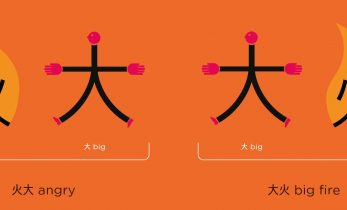Greater than 3 minutes, my friend!
Visiting the countries of your target language is a must (Part II) Visit to learn and consolidate your knowledge
So, in the first part of my post http://tralangia.com/visiting-countries/?lang=en I was telling you about the need to go out and see the world for yourself, speaking from the point of a translator who wants to experience and gather information about the target language he or she translates into. This can be considered the real test, when you make sometimes the most cruel realisations that the years you spent in learning a language the best you could somehow do not overlap with the physical reality of the language you hear in the natural surrounding, especially int he country where it is widely spoken.
People here in Heidelberg are amazed to hear that I have never been to Germany and inspite of that speak the language really well (they must have paid more attention to my accent than the content of my saying). That’s flattering and such a positive utterance can really make your day. Compliments can lend you wings, but it’s better to have doubts than to be so sure in yourself.
Prior to arriving to Heidelberg I have notified my clients of my absence and was wondering how I will be carrying on with my translation assignments, in case I get projects while in Heidelberg. This idea was new to me. I have never gone that far away from home and for such a long time (4 weeks), so this worried me a bit.
My aim in Heidelberg was to be like a „sponge“, taking in everything I could hear, write down phrases and expressions never heard before, get familiar with certain institutions which are based here, where I could present myself, and at the same time be allowed to participate in certain environments where a special kind of target language is used (notably the Justiz in Heidelber- the Civil Court).
When you visit a city for the first time, you can not but feel curious and be eager to search through every corner of the city, without interest, only to get a glimpse or even a more deeper understanding of the kind of live being lived here. The immigrants evidently shape German everyday life. On the streets I can hear a lot of languages from the Middle East. I can not distinguish these, but Turkish and Russian or maybe Ukranian are also prevalent here. In the daytime, the immigrants try to reside in certain areas, limiting their movement areas (maybe due to police warnings) and „reserving“ the parks and green spaces, as well as more frequented areas like squares and main train stations. During my stay here, nights were especially laden with criminal occurrences (this I found out by regularly reading the Rhein-Neckar Zeitung and Sueddeutsche Zeitung) like fights (mainly between different African nationals), thefts and drug dealings. So, it was pretty clear that one had to be pretty careful even if I felt like any other enthusiastic tourist would, that this city was especially magical in the night and that it would be such a shame not to experience Heidelberg under its’ city lights.
Laying my curiosity to the side and curbing my interest as a tourist, I started to regain my perspective of a translator and sought ways to make myself useful and get insights into the target language I wanted to delve into more in detail while staying here. There are a few institutions here that a translator should get familiarised with. First and foremost, the Institute for Interpreting and Translating. What I gathered is, that the University of Heidelberg, apart from being Germany’s oldest university (1386), also one of the best and renowned. This I still need to look into. When at University, you should then certainly pay a visit to the Library belonging to it and see for yourself what they offer in terms of books on translation, relevant dictionaries or studies (http://www.ub.uni-heidelberg.de/helios/kataloge/heidi.html). Personally, I wasn’t that much satisfied with the target language material, but it depends on the languages you work with. The English language, considering translation questions, is not covered that meticulously. I somehow thought that I would find some relevant English-German material I could consult or even order online afterwards should the material be to the benefit of my future translation projects. Even the book shop at the main station had more intriguing books on English used in law, banking, bookkeeping and administration than the library. Like I said, every translator has individual needs he or she must attend to. And sometimes one must just stay a bit longer in one place or have more patience to find the solutions…




